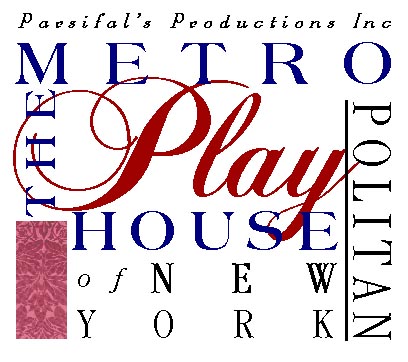Fight or Flight?
I’m going back to pressing pants with an A.B.
Always black . . . always broke. -Walk Hard, Act I, Sc. I
Insoluble problems; untenable circumstances. If we cannot prevail, what can we hope to do? Settle for creature comforts? Numb our pain with tears, or drugs? Seize relief by lashing out? Or escape—in dream or in deed?
Abram Hill, founder of the American Negro Theater, grasped for these answers in Walk Hard, an adaptation of Len Zinberg’s pulp novel Walk Hard-Talk Loud. And his resolution, neither fight nor flight, but something both more optimistic and challenging, is an aspiration to a better world.
Working as a bootblack in 1939, nineteen-yearold Andy Whitman’s prospects are limited only by the color of his skin. Bright, industrious, and black, he mostly dreams of escaping America entirely for acceptance he dreams awaits in Europe. Meanwhile, Andy’s family and fiancée have their own hopes for their spirited son. But for now, his daily struggle on the streets of New York makes make him quick with his temper and his fists.
Catching the eye of a boxing manager in a street fight, Andy is soon a rising star in a fast-paced racket. But prize-fighting is far more exploitation than adulation. It’s a game of devil’s bargains and dubious allies, controlled by men with no interest in a young man’s spirit. The hardest fights are outside the ring, and the rules are stacked against a black man seeking respect in a white world.
Pulling No Punches
The first delight of this fast-paced play is Abram Hill’s writing: filled with brio, a snappy 30’s vernacular born of Harlem apartments, midtown gyms, and the city streets.
Those words give life to captivating characters. On the streets are a smart alec street urchin, a forlorn failed architect, a hangdog manager, two washed-up fighters, a merciless top dog, and his long-suffering “lady friend.” At home are his no-nonsense grandmother, his accommodating father, his idealistic girlfriend—and her opportunistic showgirl aunt. Each role, from cameo to major, is nuanced and conflicted, bearing surprising revelations of poignant truths.
This rounded portrayal of black life in late-Depression America gives voice to a community that was simultaneously exploited and ignored by the theater of the day. Hill’s avowed ambition was to “bring a balance in the Negro theater. Most big-time commercial productions on race theme have dealt with only about 10 percent of the Negro population—as a rule the exotic lower depths. All I’m trying to do is introduce a few of the other types who run the gamut from the professional, middle class and everyday Dicks, Toms and Harrys.”
This modest declaration belies his achievement. As social and political act, his work—merely by being—is a strike against racism, marginalization, and exploitation. And the power in his punch is those richly drawn characters. Compelling people in complicated relationships with one another, their story is inevitably one of the clash between black and white society, because that is the truth of their life in America. There, Andy’s ambitions and his sense of himself are rising to a feverish boil, a decade before Langston Hughes posed a dream deferred.
Decision
Such a portrait is invaluable, in itself. Walk Hard goes further: to paint the injustices of Andy’s life rooted in shared human weaknesses, appetites, and inequities. The servile black fight trainer, Happy, is a tragic figure, but so is the compromised white manager Mack, who perceives his own complicity in a fixed and abusive racket, but does not have the will to change the rules for himself, let alone for Andy. The injustices of 1939 America are social ills that demean everyone caught in their web. Walk Hard’s ultimate vision sees cures held in the hands of everyone, whatever the color of their skins.
A remarkable achievement of its era, distinctly articulating the dilemma of a young black man in a bruising world: if only its echoes were not so clearly heard today affirming that Black Lives Matter; income inequality is corrsive; and no people, wherever they are from or whatever their color, are lesser people. In our mission to better know our country through the many voices that make it strong, bringing together an exceptional company of celebrated and emerging talents under direction of Audelco award-winner Imani, we are proud to present Walk Hard as the third production in our Season of Hope.
ABRAM HILL (1910 – 1986) Born in Atlanta, Abram Hill moved to New York as a teenager and studied at City College, earned his BA at Lincoln University, and did graduate work at Columbia. His satire On Striver’s Row (1940), had a five week run as the first full length play produced by the American Negro Theater, which Hill co-founded with Frederick O’Neal. Hill also created the hugely successful adaptation for an all-black cast of Philip Yordan’s hitherto unproduced Polish-American drama Anna Lucasta, which began at the ANT and ran over 950 performances on Broadway in 1944. This is the version that became a film with Eartha Kitt and Sammy Davis, Jr. Other plays include Hell’s Half-Acre, So Shall You Reap, and Liberty Deferred.
The AMERICAN NEGRO THEATER (1940 – 1949) was resident in the basement of the 135th Street Branch Library, becoming known as “Harlem’s Little Library Theatre,” which is now the site of the Schomburg Center for Research in Black Culture. ANT’s alumnae, many of whom got their start under Hill’s tutelage, include Sidney Poitier, Ruby Dee, Hilda Simms, Helen Martin, Harry Belafonte, Alice Childress, Georgia Burke, and Roger Furman.
-Alex Roe
